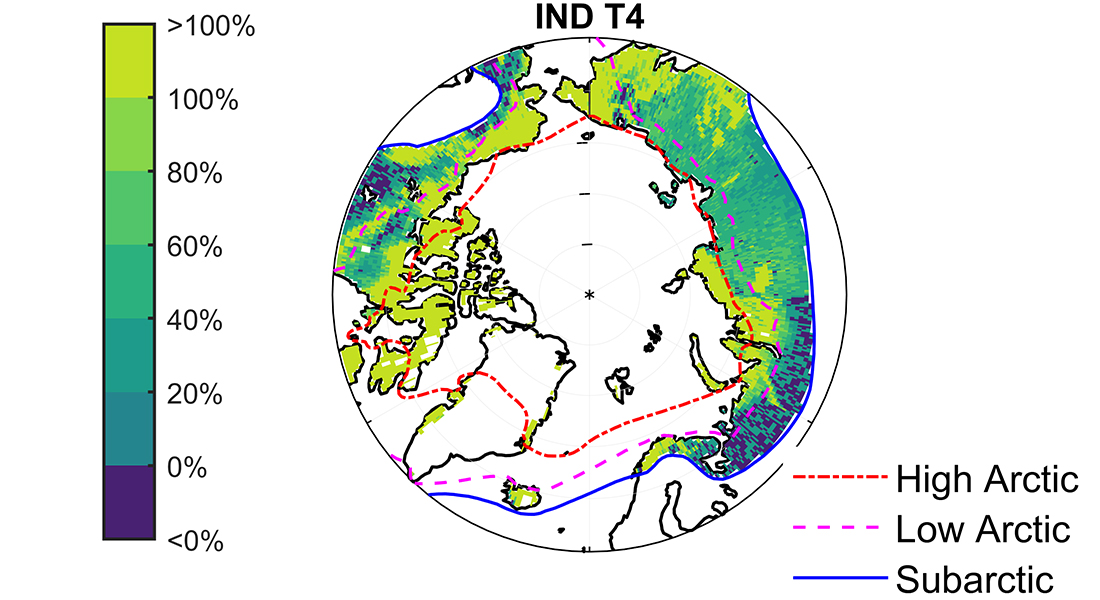Arctic emissions of biogenic volatiles will increase under climate warming
In a recent study, published in Proceedings of the National Academy of Sciences (PNAS), a team of CENPERM researchers led by Riikka Rinnan has investigated the impacts of temperature rise on the emissions of biogenic volatile organic compounds by Arctic ecosystems. The study applies observations from a range of sites in the Arctic in combination with statistical modelling and process-based ecosystem modelling

In the Arctic, temperature rise has been observed over recent decades and is expected to continue into the future. The published study investigates the impact of this temperature rise as well as other drivers on emissions. Rising temperature alters the production and emission of biogenic volatiles in plants (a direct effect), but also affects plant growth and vegetation composition, which results in indirect changes of the emissions.
The indirect changes depend greatly on the actual vegetation composition: Because plant species differ in amount and types of emitted compounds, changes can locally lead to both increases and decreases of emissions. For the Arctic as a whole, however, the direct effects dominate the response within the 14-year model simulation period, and emissions will increase with climate warming.
Original article
Rinnan, R., Iversen, L.L., Tang, J., Vedel-Petersen, I., Schollert, M., Schurgers, G., 2020. Separating direct and indirect effects of rising temperatures on biogenic volatile emissions in the Arctic. Proceedings of the National Academy of Sciences, doi: 10.1073/pnas.2008901117.
Link: https://doi.org/10.1073/pnas.2008901117
Contact
Riikka Rinnan
Professor
Department of Biology
University of Copenhagen
riikkar@bio.ku.dk
